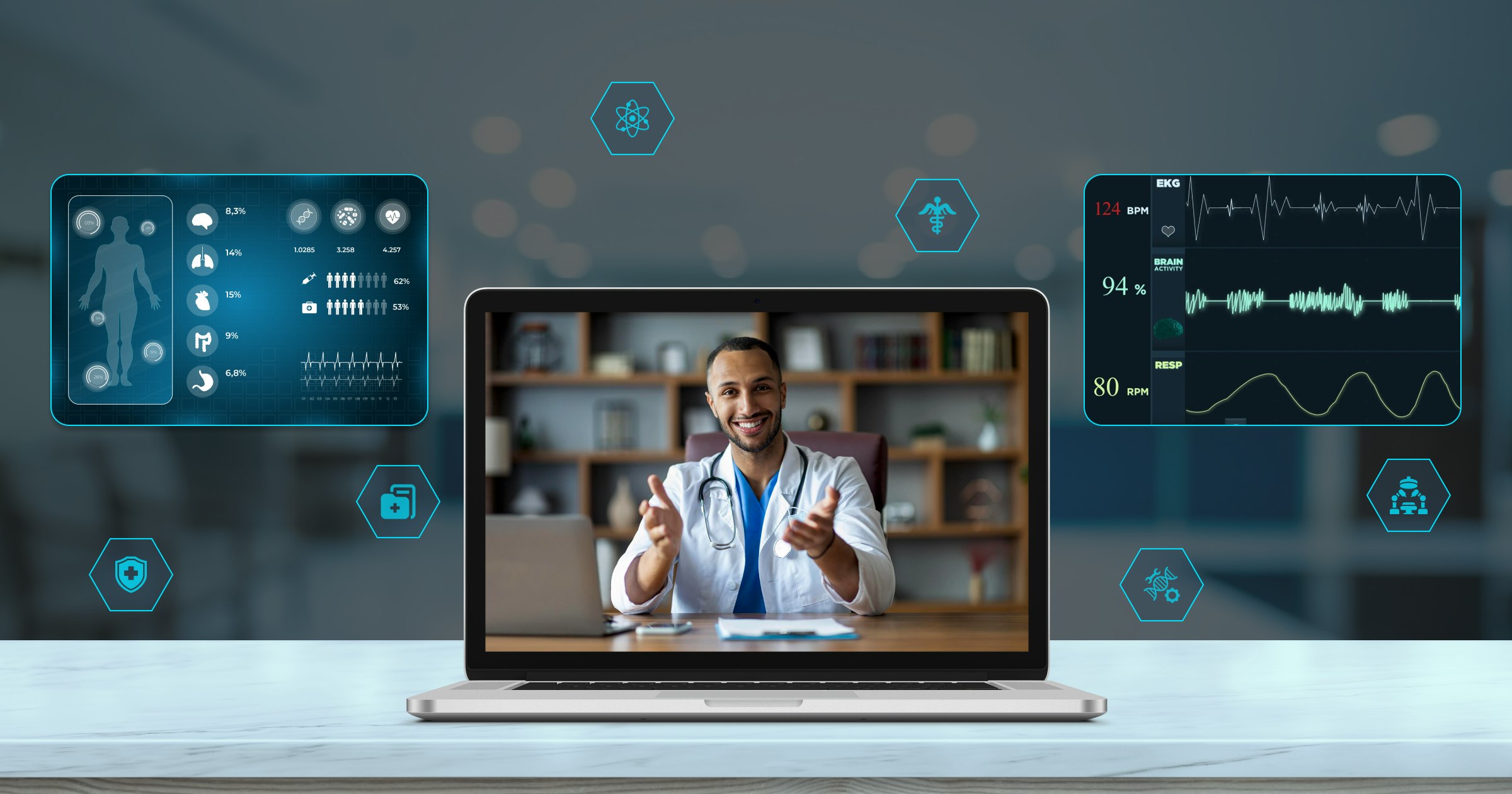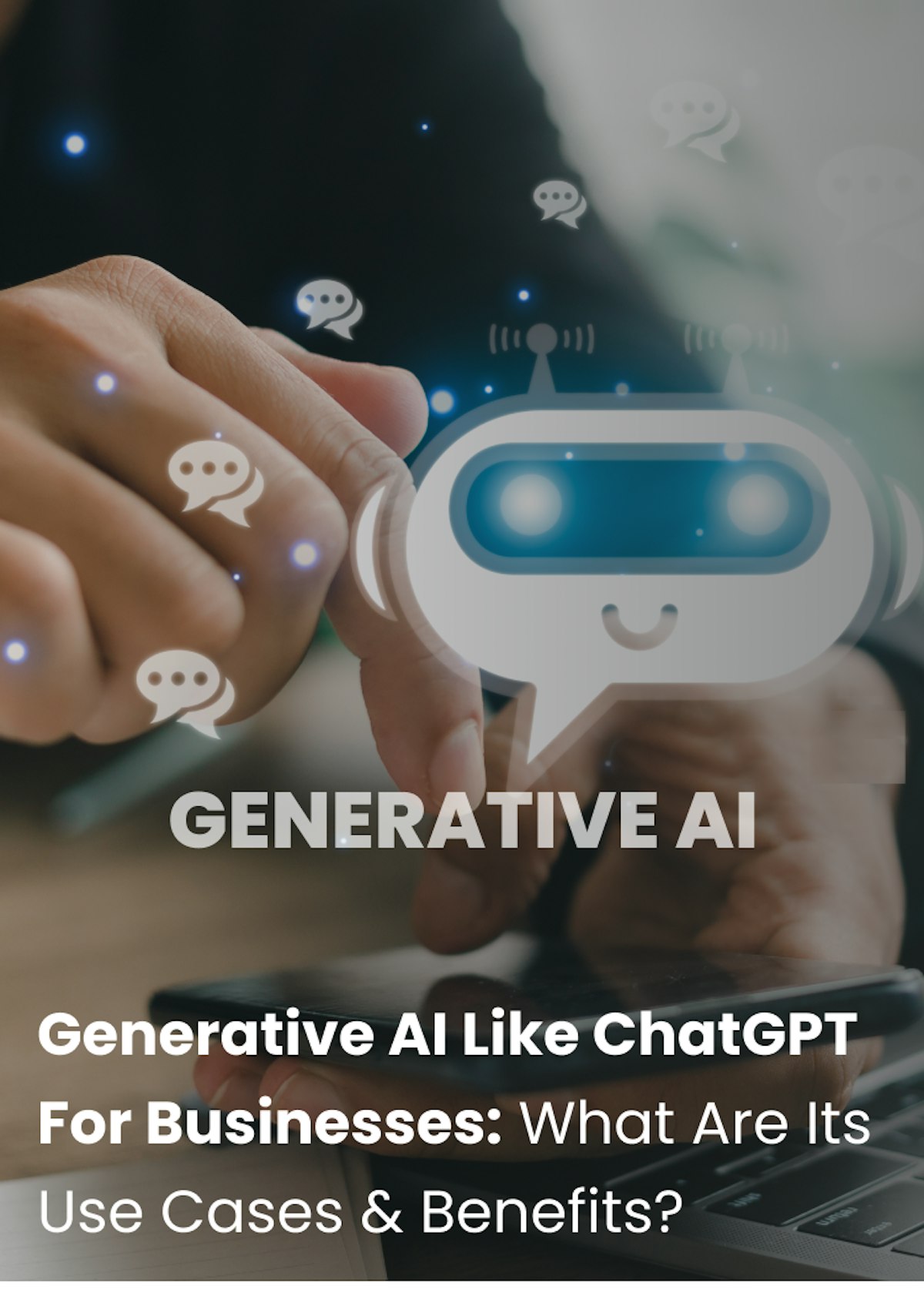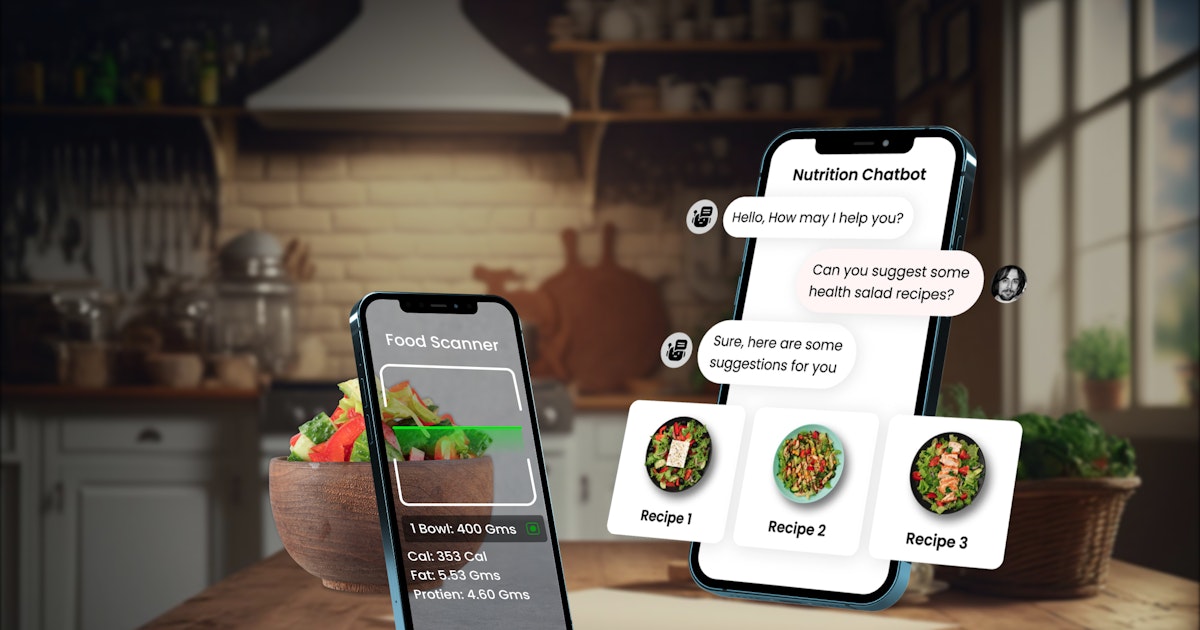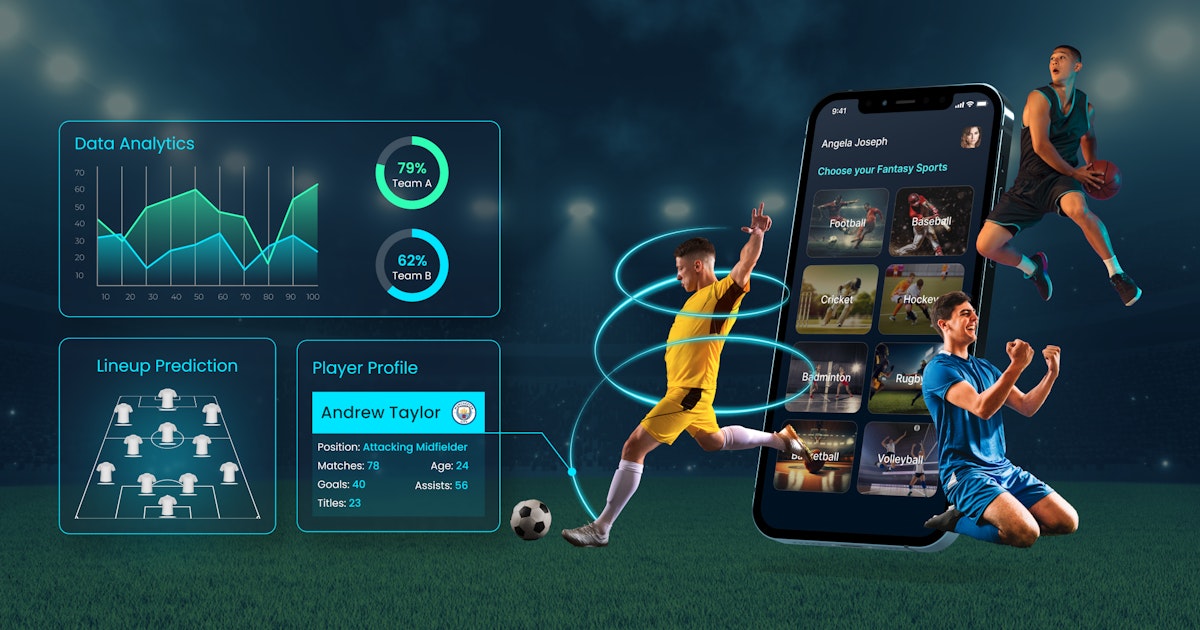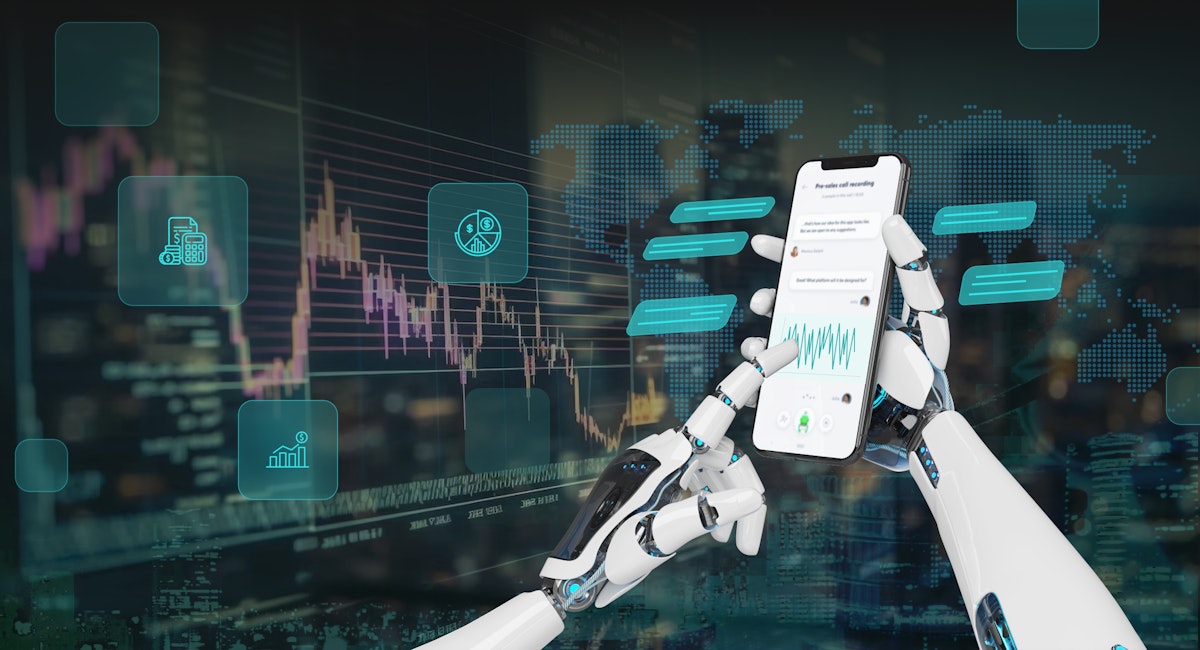Table of Content
Over the past few years, remote healthcare services and remote patient monitoring (RPM) have been gaining traction. As a service, it benefits the patients and healthcare providers by bridging the gap, reducing commune, and reaching a doctor in emergencies. Where telehealth or telemedicine was already underway before the pandemic, the global shutdown gave a big boost to this service.
Where the existing smart healthcare system has several applications, AI in healthcare is fueling another revolution in this domain. With AI, healthcare provisioning has become more efficient, fast, accurate, and effective. From processing medical data and health records quickly to helping doctors with diagnosis, treatment, and personalized care, AI is improving treatment outcomes and patient satisfaction.
The Evolving Landscape of Remote Healthcare
Remote healthcare is making it possible to take medical facilities and doctors out of a hospital setting. They make contact directly with the patient, irrespective of the location, provided both of them have the requisite infrastructure for remote healthcare.
With the help of AI, telemedicine is benefitting from streamlined processes, including;
- Data analysis
- Image recognition
- Natural language processing
- Virtual consultations
- Prescription analysis
- Strategic treatment
This happens due to improved accessibility, where patients can access medical consultation and services. AI in telemedicine can take healthcare to remote and underserved areas. Moreover, it can help create personalized treatment and recovery plans for the patients. Medical imaging analysis helps gain accurate insights using larger sets of pre-seeded data and interpreting the results of medical imaging. AI in healthcare brings convenience, faster results, and anytime-anywhere connectivity.
Using these capabilities, healthcare professionals can better manage diseases, especially chronic conditions, and also detect early signs of disease progression. Overall, using AI in telemedicine is a great way to save costs through improved clinical outcomes operations, and ensuring quality care. AI’s predictive capabilities can help detect adverse events, which is beneficial for both patients and doctors. Another aspect of AI-driven healthcare within remote patient monitoring is wearable devices. These AI-based devices are worn by patients and even healthy individuals, and the vital health signs are continuously tracked and shared with the relevant entities.
The mix of highly accurate sensors, calibration processes, and regulatory validation is creating new possibilities in remote patient monitoring. These devices collect and analyze health data, making it easier for healthcare service providers to understand their patients and reach them on time, even when they cannot initiate contact.
Smartwatches have an accelerometer, heart rate monitoring, gyroscope, and electrical heart rate sensor. These technologies can track a wide range of health parameters. Through this data, doctors can detect irregular heart rhythms while sitting in the hospitals and identify falls. Smart wearable devices help with the early detection of chronic conditions and make way for timely interventions.
How AI is Revolutionizing Remote Healthcare?
Artificial intelligence comprises several advanced technologies meant to improve healthcare outcomes. Out of all, two technologies are the most prominent;
Machine Learning:
ML focuses on algorithms and analytical models healthcare providers can use to make predictions. These models analyze medical data, images, and health records to make better clinical decisions.
This form of AI in healthcare is most prominent in medical imaging analysis, which is based on data labeling and data annotation. Software programs help doctors analyze medical reports and images to provide accurate analysis.
Natural Language Processing:
NLP technology helps effectively analyze interactions between computers and humans. The healthcare chatbots utilize NLP to a great extent and provide befitting recommendations based on user queries.
Moreover, we can employ NLP technology to process unstructured medical data and extract use insights from electronic health records to personalize treatment plans. Moreover, healthcare providers can also automate labor-intensive medical coding and data entry processes.
These two and many other technologies are cementing AI’s capabilities in medical diagnosis. AI can analyze large amounts of data more efficiently than humans, so the diagnosis it reaches is more accurate. Using this information, doctors can identify the key areas of treatment and prioritize treatment. With AI in healthcare, hospitals and clinical professionals can use programs built with prediction capabilities.
These programs use carefully selected patient data, precise information, and medical imaging analysis to predict health risks. The accuracy of the prediction on the quality of data provided to the AI program.
Can AI Help with Drug Discovery and the Development of New Medicines and Therapies?
AI has proven to be highly effective in clinical trial design, drug discovery, and drug manufacturing. Here again, the basis is the effective analysis of large data sets, which helps in designing new molecules and predicting the efficacy of potential candidates.
Exscientia was the first AI drug molecule prepared for human clinical trials. From then till now, there have been several developments in this area;
- Target identification: Specific large datasets are used to discover biological mechanisms of diseases and identify novel proteins.
- Molecular simulations: AI-powered simulations are eliminating the need for physical testing of drug compounds.
- Predicting Drug Behavior: AI programs are used to predict and discover key properties of drugs and medicines. This includes knowing their toxicity, bioactivity, and physicochemical properties.
De novo drug designing or new drug development is also an interesting application of AI in telemedicine. Traditional drug development involves screening candidate molecules from large libraries of datasets. But with AI in place, the screening process is fast-tracked. As a result, we are seeing new drugs being developed at a faster pace.
Moreover, there have been cases when AI has generated promising new molecules for drugs that were never seen before. So, AI is also shining a light on the information we have earlier missed or not considered at all.
Lastly, we can expect AI to deliver curative therapies by analyzing complex genomic, glycomic, and metabolomic data. The power of AI can be used to understand better human anatomy and biology, leading to the development of precise curated therapies for chronic conditions like cancer and others.
How AI is Changing the Face of Remote Healthcare?
AI in healthcare has several possibilities and has the power to improve healthcare capabilities. The combination of machine learning, NLP, and healthcare data analysis is paving the way for a better and integrated healthcare system. This is a system where remote patient monitoring (RPM) is driven by deep learning and computer vision to assist healthcare professionals in making more accurate and precise decisions.
AI-based remote patient monitoring can be delivered through video, where patients and doctors connect through a video call. In the same instance, doctors can use intelligent programs to analyze patients' scripts, conduct symptom analyses, and monitor heart rate and other vital signs through wearable devices.
Hence, through one call, they can deliver complete patient care and reach definitive results. When in the hospital, doctors can take AI’s help in conducting surgeries. Robotic surgeries are progressively becoming an integral part of large hospitals. These robotic surgeries are driven by AI’s expertise, which it has gained from going through thousands of surgeries.
The robots develop best practices to reduce the risks during surgeries and reduce surgery time. As a result, AI-based programs integrated into remote healthcare improve a surgeon’s and patient’s experience.
AI for Remote Monitoring:
- Well-established telemedicine services are rendered by hospitals. Using wearable and smart equipment, patient’s vital signs are read and shared through a secure server, accessible to the nursing staff, care homes, and doctors. Vitals like blood pressure, pulse, heart rate, breathing rate, etc., are read and shared. AI can also help detect slight color changes in the face with each pulse beat. Taking this information into account, an AI program can effectively send warning signals and real-time health updates to the care providers. As a result, there is no need to visit the hospital until and unless it's necessary.
Personalized Treatment:
AI programs can read and understand every detail healthcare professionals provide. They can understand medical imaging and prescriptions. Using data like specific symptoms, medical history, lifestyle factors, and genetic profiles, AI systems can predict disease progression rates. Hence, they can help doctors with building a personalized treatment plan.
Appointment Scheduling and Patient Queries:
Patients can use an AI system to schedule doctor appointments while talking with a program. The AI programs imitate human interaction systems to answer patient questions and help them book appointments.
Going forward, healthcare professionals will leverage AI to augment the healthcare services and solutions they provide.
A Leading AI Development Services Company
Explore NowConclusion
Artificial intelligence has made its impact in a lot of sectors, including healthcare. AI programs are fed with immense amounts of data, which they leverage to deliver innovative solutions. We can expect AI to steer a revolution in the global healthcare system where every patient gets treatment at low costs and on time. Will we achieve this is yet to be known, but if implemented correctly, effective global healthcare can be achieved.
With Intuz, you can start your journey of AI in healthcare as we help you build customized solutions. Our expertise in AI allows businesses to innovate and bring new use cases of the technology to the front and help deliver better healthcare solutions. Become a part of the AI revolution with Intuz. Get Started.
